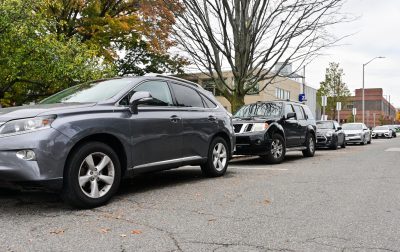Cambridge City Council eliminated parking requirements in the zoning code for buildings last Monday to create room for affordable housing, sustainable transportation and other commercial uses, according to a Cambridge policy order.

With the amendment now finalized, developers are no longer required to allocate space for parking when constructing housing, which Cambridge City Councilor Patty Nolan said will save money.
“For larger units, it can definitely be anywhere from $50,000 to $100,000 just to build a parking spot,” Nolan said.
The Metropolitan Area Planning Council concluded from a recent study that 30% of parking spaces built for apartments in Boston go unused by residents, as detailed in the policy order.
Cambridge City Councilor Quinton Zondervan said this change in parking requirements will make it cheaper to construct housing in the future.
However, Zondervan said while the requirements for the amount of parking within new buildings will be altered, it would not eliminate all parking or car use entirely.
“The number of resident parking permits have been decreasing over the last 20 years,” he said. “The actual competition for existing parking is not intensified.”
Cambridge City Councilor Dennis Carlone voted against the order, and said the new minimum gives the power to decide on parking spaces to the developer and not renters.
“I hate through traffic, I think it’s absolutely wrong,” Carlone said. “This (order) will have nothing to do with through traffic, which is the biggest issue in the city … There’s no basis for it whatsoever.”
Nolan said cities already subsidize private car ownership with most public land owned being roads.
“There was this assumption (in) public policy to basically subsidize expensive roads,” she said. “And it has led to a situation that is quite damaging from an affordable housing point of view, from a community point of view, from an environmental point of view.”
The drop in parking requirements will also contribute to positive environmental change, with less need for driving and car use, Nolan said.
“We’re not advantaging cars as much, and we’re not expecting people to have cars, and we’re not making people have a parking spot in some of our units,” Nolan said.
Nolan said this change may make it more expensive to own a car, because there are already challenges in available street parking and parking in general.
Zondervan said the city is “moving in the right direction” in reducing car usage and ownership in Cambridge.
“It’s important to be clear that … all the existing parking remains, and just because we removed the requirements doesn’t mean that new buildings won’t have parking, it just means they will have as much parking as needed to make that building work,” he said.




